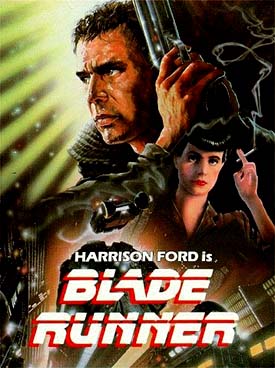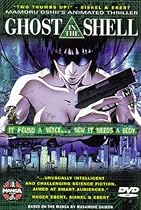 A very enjoyable cyberpunk action thriller. Despite often murky photography and less than convincing CGI, the storyline provides an interesting set of characters and a fair amount of heart that works together to provide a satisfying little film that is fairly well handled by first-time director from Singapore, Pearry Teo (who went on to write a neat comic book series based on the concept, DNA Hacker Chronicles).
A very enjoyable cyberpunk action thriller. Despite often murky photography and less than convincing CGI, the storyline provides an interesting set of characters and a fair amount of heart that works together to provide a satisfying little film that is fairly well handled by first-time director from Singapore, Pearry Teo (who went on to write a neat comic book series based on the concept, DNA Hacker Chronicles).
Bai Ling is very good and holds the film together as the leather-clad assassin in a future age in which DNA is sold – and hacked – to forge identities, leaving the former persons lifeless and mutated. Squidlike tendrils abound in these mutated forms, which make for some interesting effects moments.
The rest of the cast is serviceable, with Alec Newman, as the local fugitive DNA hacker-scientist with whom Ling has an intimate association, and Parry Shen as Ling’s out of control narcissistic gambler brother, whose careless escapades predicate most of the bad stuff that happens to Ling.
The film builds an effective futuristic environment, borrowing liberally from BLADE RUNNER, MAD MAX, and other science fiction visual landmarks, while creating its own unique post-modern landscape (most effectively revealed at the final tracking shot that closes the film and gives the story a whole different twist).
THE GENE GENERATION is greatly aided by an excellent musical score by Scott Glasgow (TOXIC, BONE DRY), which provides a great sense of size and scope and expansiveness through massive chords of sampled orchestra and choir, offset with ethnic instruments and vocals associated with Bai Ling’s character. The score also emphasizes the underlying intimacy and emotional attachment sought by the characters, especially the pathos embodied in Bai Ling’s character, Michelle. A fun movie.

THE GENE GENERATION (2008). Directed by Pearr Reginald Teo. Written by Keith Collea, from the comic by Pearry Reginald Teo. Cast: Bai Ling, Alec Newman, Shen Parry, Faye Dunaway, Ethan Cohn, Robert David Hall, Michael Shamus Wiles.


